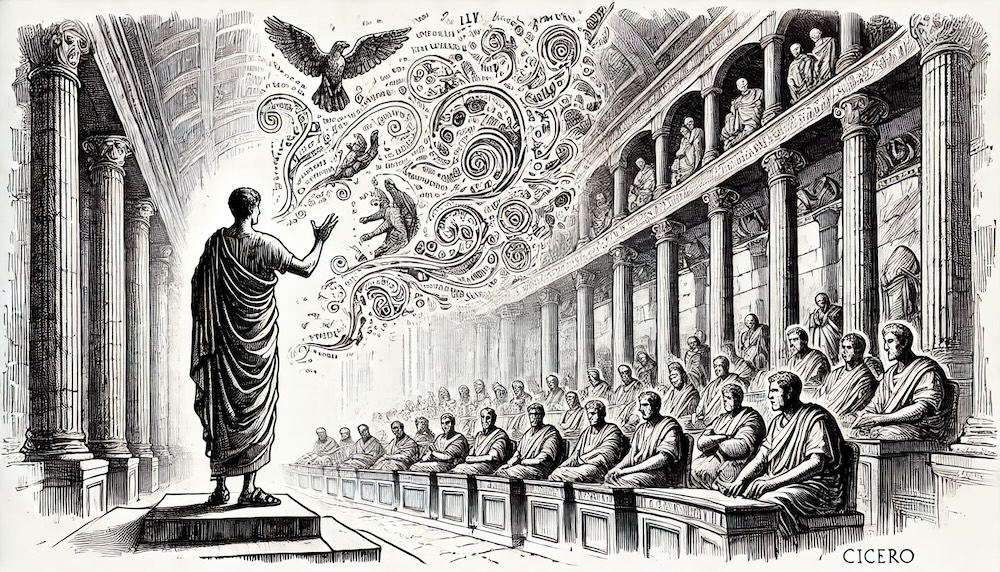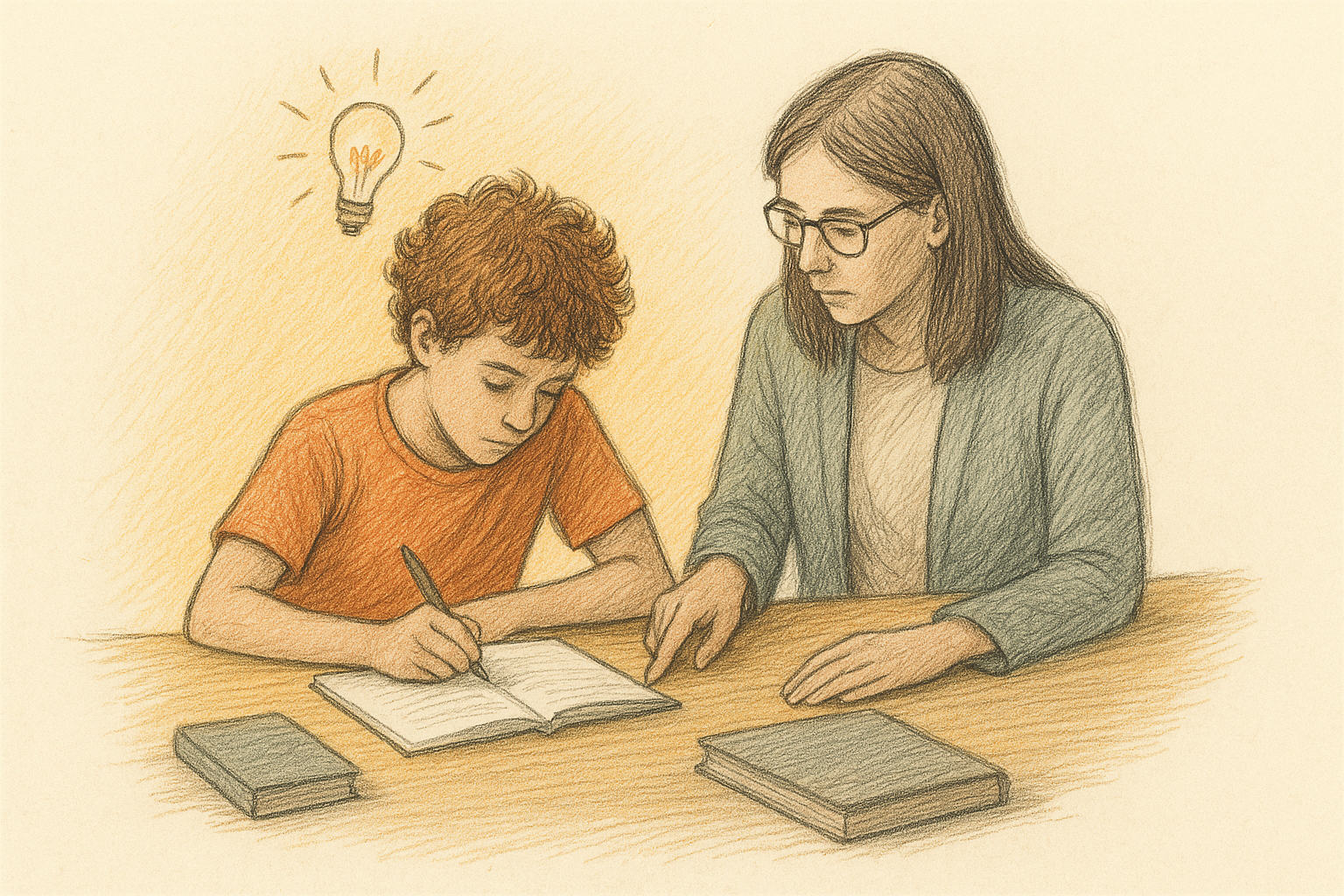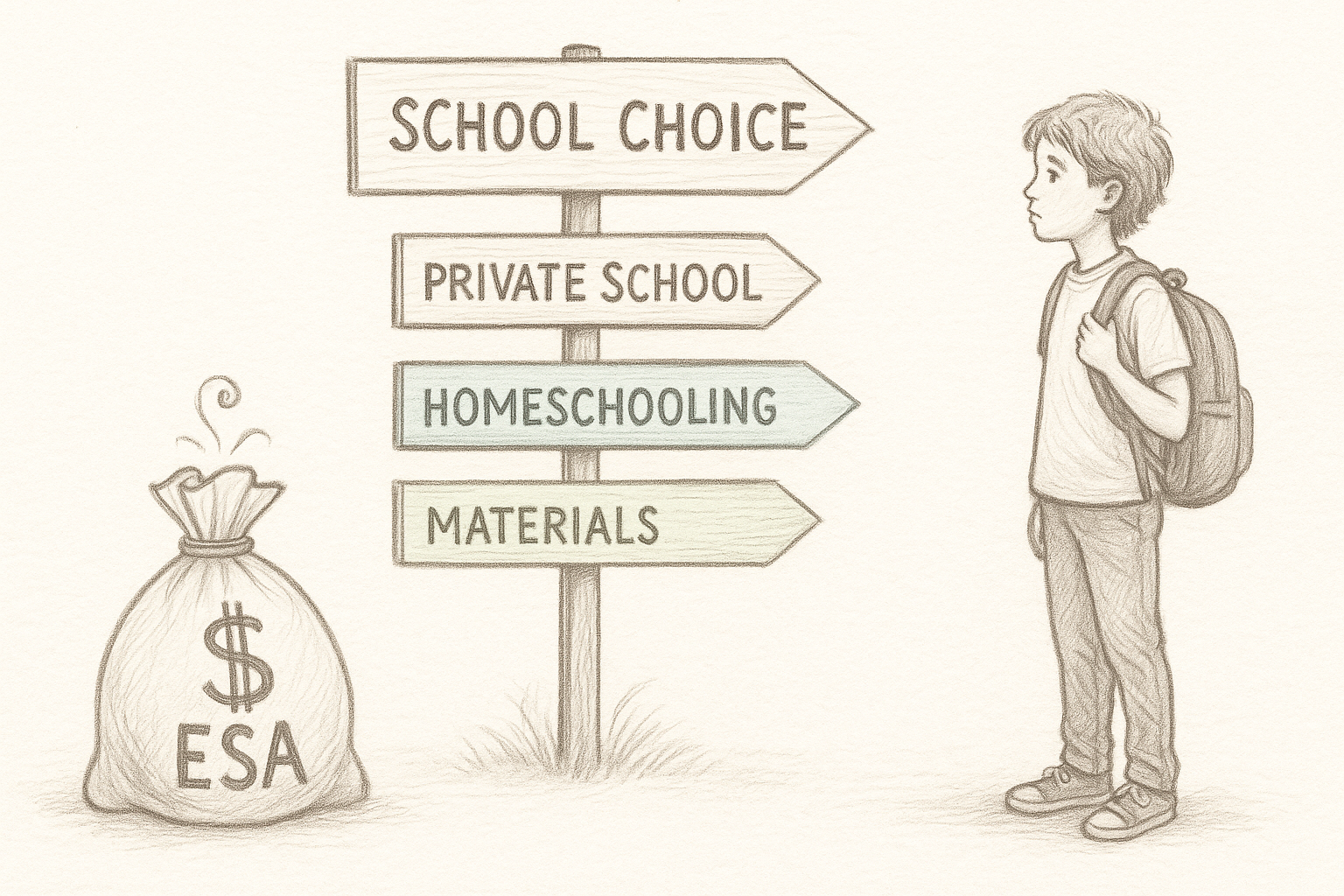Debating teaches not only confidence and public speaking skills but also critical thinking, observation, researching, and problem-solving skills. Arguments are acrobatics for the mind. They teach us how to function under pressure and address opposition. As F. Scott Fitzgerald once said, “The test of a first-rate intelligence is the ability to hold two opposed ideas in mind at the same time and still retain the ability to function.”
So Why Take a Debate Class?
Have you ever felt yourself clam up in an argument, or worse, say something you don’t mean? I know I have, and it’s not in my head. Our bodies and brains change when faced with opposition, but learning how to work through it and craft arguments employs an array of skills that are useful in many facets of life.
Let me take you back to middle school where my best friend, Bo, sat across from me waving his hands emphatically as he argued the importance of guns in our society. We had both chosen a topic for our big research paper. I was supposed to argue the merits of gun control and his assignment was to argue the opposite case. We had sat down to have a discussion, and flesh out the foundational ideas of our arguments as a starting point for these papers. I sat silently across from him with my cheeks burning, appalled, not at what he was saying but at how easily he had talked circles around me. In my head it seemed obvious why guns were a bad idea, but I began to realize that wouldn’t be enough. The worst part? I knew that he didn’t even believe what he was saying, and that, at the end of the day, he agreed with me. So, why couldn’t I win this damn debate?
Sitting there, in that middle school history class wishing I was anywhere else, it struck me: talking, arguing, debating, it was a skill! And, unfortunately, one I didn’t naturally possess.
The History of Debate
Debating and arguing have a long, storied history. Debate began as rhetoric, turning an idea into a communicable message. Debating in its earliest forms can be traced back to Greek philosophers. Socrates sought to tease out truth in the world by carefully crafting his arguments and locating weaknesses in the assumptions made. Although his form of inquiry isn’t debate exactly (it’s dialectic, which is different), the basic idea of inquiry underlies both. (Note, Socrates and Plato didn’t love rhetoricians; but that’s another story.)
Perhaps the most famous debater and arguer in history was Cicero, our namesake. Cicero was a lawyer and statesman whom many consider one of the greatest Latin writers and speakers ever and who perfected the art of argumentation. Cicero was born in Arpinum Italy in 106 BCE and, after a thorough education with private teachers he became a lawyer, eventually making a name for himself through a series of seminal cases where he demonstrated how to use rhetoric as a finely crafted blade in order to slay his opponents.
In 75 BCE, Cicero took on the role of quaestor, marking the beginning of his official political career. Working alongside Gaius Verres, Cicero quickly unearthed Verres’ corrupt practices. When Verres was later prosecuted in Sicily, he tried to delay justice by appointing Hortensius as his defense, hoping to outmaneuver Cicero. But Cicero, with his sharp wit, exposed Verres’ schemes and won over the jury. Facing inevitable defeat, Verres chose voluntary exile on Hortensius’ advice.
Cicero’s brilliance lay in his ability to weave logic, opposition, and emotion into his arguments, which some consider earned him the title “father of rhetoric.”
(Here at Cicero we just launched a new debate course, which, like all our courses, is completely personalized to the learner. Some students, who have an interest in history, are focusing their time in this course on the history of debate and rhetoric and studying Cicero’s speeches—which we think is valde mirabile (very cool in Latin).)
Political Debate
Flash forward to 1858 we can see the importance of debate reflected in the historical debates for the Illinois Senate race between Abraham Lincoln and Stephen Douglas. This was a series of seven highly publicized debates throughout Illinois, much of which focused on slavery. Lincoln’s performance in these debates was particularly noteworthy. Although he did not win the Senate seat, his eloquent articulation of the Republican stance against slavery and his ability to engage in reasoned argument elevated his national profile, paving the way for his successful presidential campaign in 1860. The debates underscored the power of rhetoric and reasoned argument in shaping public opinion and political outcomes.
As Lincoln and other great debaters have demonstrated, debate skills can drive change; and any student who aspires to be a changemaker would be wise to take a debate course (or two) during their middle school or high school career. Now, I know that what you’re thinking, that the last thing you want is for your argumentative teen to get better at arguing. But, trust me, arguing is a life skill.
A Debate Class Builds Critical Academic and Life Skills
A big part of learning how to debate is learning how—as both Cicero and Lincoln demonstrate—to effectively shape an argument; and a key piece of this is doing the intellectually honest work of considering the other side of the argument, in order to refute it. As a result, studying debate teaches intellectual rigor, how to organize your ideas, and how to artfully convey those ideas in public speech.
A debate class combines aspects of logic, cognitive performance, research, argument building, confidence, and public speaking. Which are all important far beyond the classroom.
Now, I wish that moment in middle school had spurred me into getting serious about learning how to debate as a lifelong skill. Unfortunately, the standard middle school education does not include learning how to debate or the importance of debating. In my middle school mind the debate club was for nerds, (although I’m not sure how much less nerdy chess club, to which I belonged, was,) so I shied away from it and instead avoided confrontation and debate at all cost. Lucky for me, Cicero was about to be invented. Transitioning from standard school to homeschooling changed my education for the better. Being taught at a one to one ratio allowed me to pursue my interests in a way that wasn’t possible before, homeschooling met me where I was instead of making me focus on where I wasn’t.
Now, looking back, I understand that if I had taken a debate class I also could have eloquently talked circles around Bo. Although the stakes were low for us in that moment; looking beyond I can see many, many moments ahead of me where having the ability to structure an unbeatable argument and the cool confidence to deliver it will be important.








2 Responses
Debate isn’t just about arguing, it’s about learning to think clearly, stay calm, and really understand both sides. I wish I’d known sooner how valuable these skills are not just for school, but for handling all kinds of real life situations.
Can’t even use a image made by a person, shame.